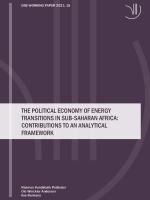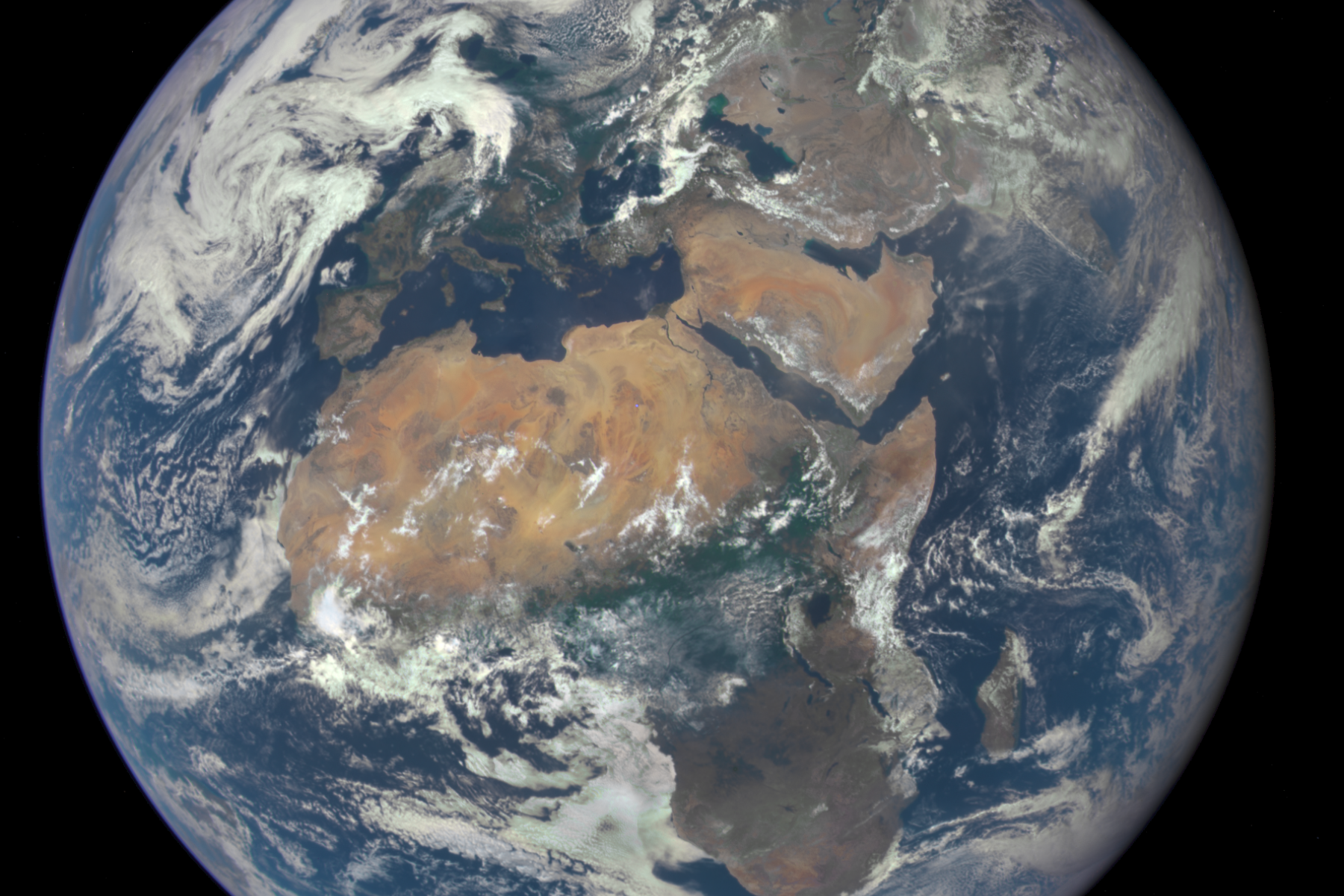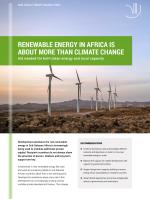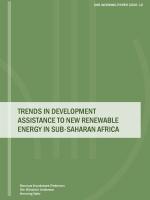The political economy of energy transitions in Sub-Saharan Africa
What do energy transitions look like in sub-Saharan African countries? At the recent COP26 Climate Conference in Glasgow, much attention was paid to the issue of financing clean energy projects. Rich and developing countries struggled over who should bear the costs of transitions. Some rich countries and institutions declared an end to their funding of fossil-fuel projects. Some developing countries insisted on their own priorities, which could include the right to develop domestic oil and gas resources. Energy transitions, in other words, are charged with political questions that cut across local, national, and international levels of decision-making.
Nonetheless, there are patterns in whether and to what extent lower-income sub-Saharan African countries deploy renewable energy that we are gradually beginning to understand. A new DIIS Working Paper by DIIS researchers Rasmus Hundsbæk Pedersen, Ole Winckler Andersen and Ilse Renkens reviews the existing literature and points out the decisive role of politics and power in energy transitions. Most importantly, significant differences can be observed between countries with fossil-fuel resources and countries without them. This calls for support strategies that go beyond financing to reflect the particular political economies of energy in different countries, as the authors argue in a DIIS Comment outlining the main lessons of the study.
This DIIS Working Paper has received financial support from the Ministry of Foreign Affairs of Denmark. It reflects the views of the authors alone.
DIIS Experts







